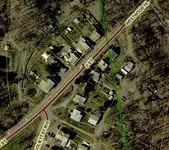CMan1
Full Member
- Joined
- Nov 21, 2014
- Messages
- 109
- Reaction score
- 55
- Golden Thread
- 0
- Location
- Treasure Coast 1715 Florida
- Detector(s) used
- AT PRO
- Primary Interest:
- All Treasure Hunting
Good story just keep digging.
That's part of the problem. Many people don't realize that the grass strip (in most towns. Check your local rules to be sure) is NOT private property, even though you're required to maintain it.Honestly, I'd have a problem if I saw someone in my front yard digging it up as well. Yes, technically there is an area so far from the street owned by the city, but I maintain it. I cut the grass, pick up the trash, hell I even clean the curb which is without a doubt city property.
I understand you were not in the wrong here, legally. However that doesn't mean it's a wise decision to start digging up everything '30 feet from the center of the street.
That's part of the problem. Many people don't realize that the grass strip (in most towns. Check your local rules to be sure) is NOT private property, even though you're required to maintain it.
..... But if its part of someone front yard. I would be very careful with plugs and holes.
Honestly, I'd have a problem if I saw someone in my front yard digging it up as well ......... that doesn't mean it's a wise decision to start digging up everything.......
My take on this story is that even though this land belongs to the city,it is only right that we use etiquette.It's a part of
metal detecting 101.If this land is a part of the land the homeowner takes care of?Communicating with the homeowner is not out of the question..Actually it would be the right thing to do.
 PEACE:RONB
PEACE:RONBWow. All cities in Texas? Certainly not the case in my city. They are considered city property and I can legally hunt them and I do. I don't think in Missouri attorneys can publicly give legal advise but I'm not sure on that. I do know I can legally hunt my curb strips without asking. I don't know to whom your comments were direct at but as a newbie you should know that the use of all capital letters when talking to someone on this forum is against the rules. Just letting you know in case you want to edit. I have no problem with it personally.
Kemper I have been on TN since 2006 and a mod for 3 years, I know the rules and the interpretation of them. Guide lines are still part of our rules, if you have issue, take it to PM..It is a guideline not a rule. Wasn't playing a mod but trying to help the new person out-----
Don't "SHOUT" in large type. Use bold, red, or other special type only when necessary. (Exception: birthday greetings, special congratulations, etc.)


